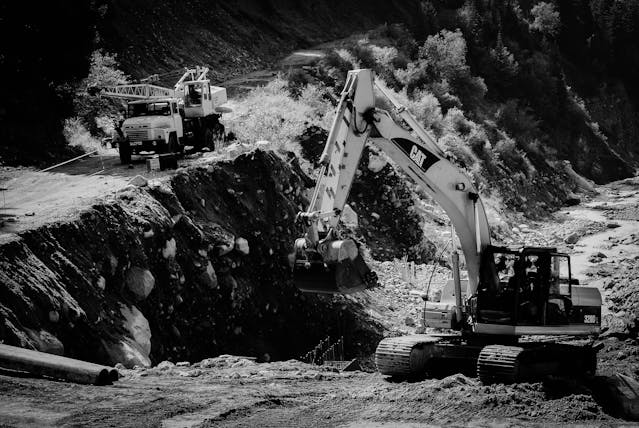Coal mines have played a pivotal role in shaping the industrial landscape of the modern world. For centuries, coal mining has been an essential industry, driving economic growth and providing the energy needed for manufacturing, transportation, and residential heating. However, the legacy of QLD coal mines is complex, encompassing not only the economic benefits they have provided but also the significant environmental and health challenges they pose. In exploring the multifaceted impact of coal mines, it becomes evident that while they have been a cornerstone of industrial advancement, they also present substantial dilemmas that societies must navigate.
The economic contributions of coal mines cannot be understated. During the Industrial Revolution, This fossil fuel was abundant and relatively cheap to extract, making it a vital component in the industrialization process. Entire communities grew around coal mines, with towns and cities flourishing as employment opportunities expanded. The jobs created by the coal mining industry were often well-paying, providing livelihoods for countless families and fostering regional economic growth. Even today, in many parts of the world, coal mining remains a critical source of employment and economic stability.

However, the environmental impact of coal mining has increasingly come under scrutiny. Coal mines disrupt ecosystems, leading to deforestation, soil erosion, and contamination of water sources. Acid mine drainage, a process where sulfide minerals in the mined material react with air and water to produce sulfuric acid, can severely pollute local waterways, affecting both wildlife and human populations.
In addition to environmental concerns, coal mining poses significant health risks to workers and local communities. Miners are exposed to hazardous conditions, including coal dust, which can lead to respiratory diseases such as pneumoconiosis, commonly known as black lung disease. The physical demands of mining work also result in a high incidence of injuries and fatalities. Beyond the immediate health risks to miners, the broader community is affected by the pollution generated from mining activities. Airborne pollutants from coal combustion can cause respiratory problems, cardiovascular diseases, and other serious health issues for people living near coal-fired power plants and mines.

Despite these challenges, coal mining continues to be a contentious issue due to its economic importance. Many regions heavily reliant on coal mining face a difficult transition as the world moves towards cleaner energy sources. The shift to renewable energy, while necessary to combat climate change, poses economic risks to communities dependent on coal for jobs and revenue. Policies such as retraining programs, economic diversification initiatives, and investment in new industries are essential to mitigate the social and economic impacts of moving away from coal.
The future of coal mining is uncertain, as the global community grapples with the need to reduce carbon emissions and mitigate climate change. Some countries are phasing out coal in favour of renewable energy sources like wind, solar, and hydroelectric power. These alternatives offer cleaner, sustainable options for energy production, but they also require significant investment and infrastructure development.
Technological advancements offer some hope for reducing the environmental impact of coal mining. Carbon capture and storage (CCS) technology, for example, aims to capture carbon dioxide emissions from coal-fired power plants and store them underground, preventing them from entering the atmosphere.





